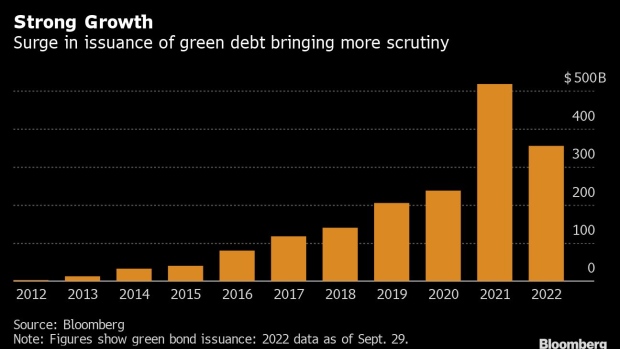Sep 29, 2022
Japan’s First Bond to Help Ocean Planned by Major Seafood Firm
, Bloomberg News

(Bloomberg) -- Major Japanese seafood company Maruha Nichiro Corp. is planning to sell the country’s first blue bond next month to fund sustainable fisheries.
The firm mandated Mizuho Securities Co. and Mitsubishi UFJ Morgan Stanley Securities Co. to manage the 5 billion yen ($35 million) offering of five-year notes, according to a filing. It’s the company’s debut bond, and the money raised will go into projects including salmon farming.
Only a few issuers have sold blue bonds globally, totaling about $2 billion. That’s a fraction of the $1.5 trillion green debt. Even so, the tiny market is emerging at a time when investors and analysts are increasingly scrutinizing the use of funds raised from such debt to ensure that borrowers are not misrepresenting their sustainable bona fides to tap feverish demand.
Amid a far-reaching market selloff, the slump this year in blue bonds, which are relatively scarce, has been less than green debt more broadly. The average loss on seven blue bonds outstanding globally stands at 11.2%, according to data available on Bloomberg. That compares with 28% for a global index of green notes.
Most of the bond sales have been by sovereigns and international organizations, making a corporate issuance even rarer. Tokyo-based Maruha Nichiro also imports salmon, crab and other fishery products to meet huge demand for seafood in Japan.
The International Finance Corporation is planning to publish a guidance document this fall, with other global organizations, that would help define eligibility criteria and key performance targets for fund-raising in the so-called blue economy. At the moment, the issuance falls under the green bond principles, a set of voluntary guidelines on structure, disclosure and reporting.
(Updates with chart, background on blue bond sales and returns.)
©2022 Bloomberg L.P.





